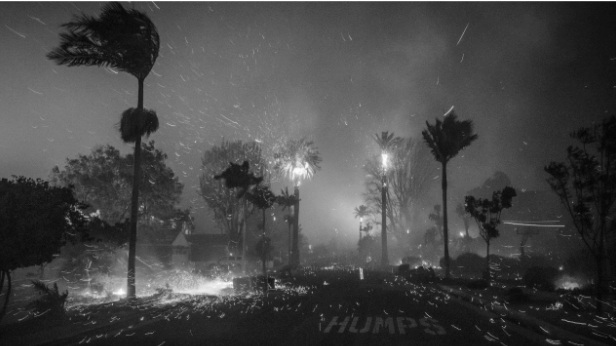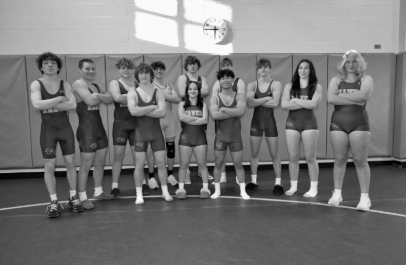Meteorologist gives insight to students, guaranteeing no mist opportunities for aspiring journalists
March 23, 2021
Timothy Springer, a daybreak meteorologist from Wichitaw, Kansas on the news channel KOLR10, visits the North Harford High School Journalism One (J1) class. The aspiring journalists were able to learn a lot from an experienced TV personnel. Cole H, a J1 student commented on this, saying he learned that journalists should “Try to be relatable to the audience as much as possible, such as clothing or hairstyle. Also, try to talk to your audience like you would your own family.” By relating to these students, Springer is positively impacting how they feel about the subject. He is showing that someone just like them was able to accomplish this much, so they can do the same, therefore inspiring young minds to continue pursuing their dreams.
Being on TV, no matter how many people see him, Springer faces criticism daily. Another J1 student, Noel Baileyo, commented “I was surprised about the number of negative comments he got. He also mentioned that you just have to sit back and listen to it” because you could learn from it, however he ultimately knows that these comments should not become a setback since his dream of being a meteorologist is something he has always wished to pursue. Springer agreed saying, “. I was always that crazy kid that was going out into thunderstorms or running out and watching hurricanes come our way[..] A lot of us have realized from a really young age that it is something we’ve wanted to pursue.”
Learning from criticism is a vital lesson to learn when working in an industry reliant on the peoples’ opinions, however it is best to “Listen to the critiques and move on,” Olesya James stated, summarizing Springer’s dedication to the job whilst sharing what she thought was the most interesting and insightful part of his presentation. Another great piece of advice given during his visit was, in Gabrielle Moxham’s opinion, “When you mess up, just shake it off and keep going because you are probably going to do it in another two seconds”.
Another important aspect of being on TV and being the face of a news station is the toll that criticism takes on your mental health. Since the station Springer is on, and most other TV stations, are on most of the day, they need to be prepared to have little time to recuperate. Even when the station is not up and running, they are on social media and other platforms that can have a negative effect on mental health. It is just another part of the job, however in Springer’s experience with it, he says “I’m thankful I haven’t dealt with depression or too much anxiety. But occasionally we all can deal with it and I just try to take a step back and regroup.”
Being a meteorologist, Springer has to chase after his own stories, dangerously gaining information about storms by going towards them himself. J1 student, Gary “Thought it was very cool how he goes into storms and kind of risks his life for his job. He talked about it with such ease that it was kind of impressive.”
Brookelyn Priebe adds, “I was kind of surprised about how you have to actually chase a storm and that [weather reporting] is not just a thing people say. I think it’s pretty interesting how he could just come up with a weather update off the top of his head and still sound professional and real.” This professionalism rubs off on the students who may want to follow in that same path. Springer was able to become a great example of what an experienced public speaker looks like, illustrating what the students should and should not do when in the spotlight.
Reporters may need to deal with many hurtful comments each and every day, creating a sometimes-harsh work environment for those in that field of study. However, Springer knows that he must have tough skin and shake off that criticism because as long as he follows his script, he is able to recognize his own efforts, it does not matter if others mock him for that hard work.
He has also gained many lessons through this job- whether that be information from textbooks and classes or life lessons. Springer has always learned to never be complacent: “Whether you’re finding a new way to tell the weather story, or making new graphics, it keeps things fresh,” Springer says. Doing everything in a timely manner as well as multi-tasking is a key part of navigating the intense workload. However, the courses he took in college assisted him in preparing for this. In addition to all the general education classes that meteorologists take, Springer’s meteorology courses really kicked into high gear his junior and senior year.
Springer believes that hard work pays off and this statement is what he wishes to advise those that want to take the same path that he has. “Many of us have to work extremely long hours, holidays, and different shifts. Continuing to persevere and climb the ladder really does pay off.,” Springer continues to advise, “All I can say is work hard and keep your head up and you will do just fine! Remember that it’s not always about money or market size but being happy and having a good quality of life.”

















